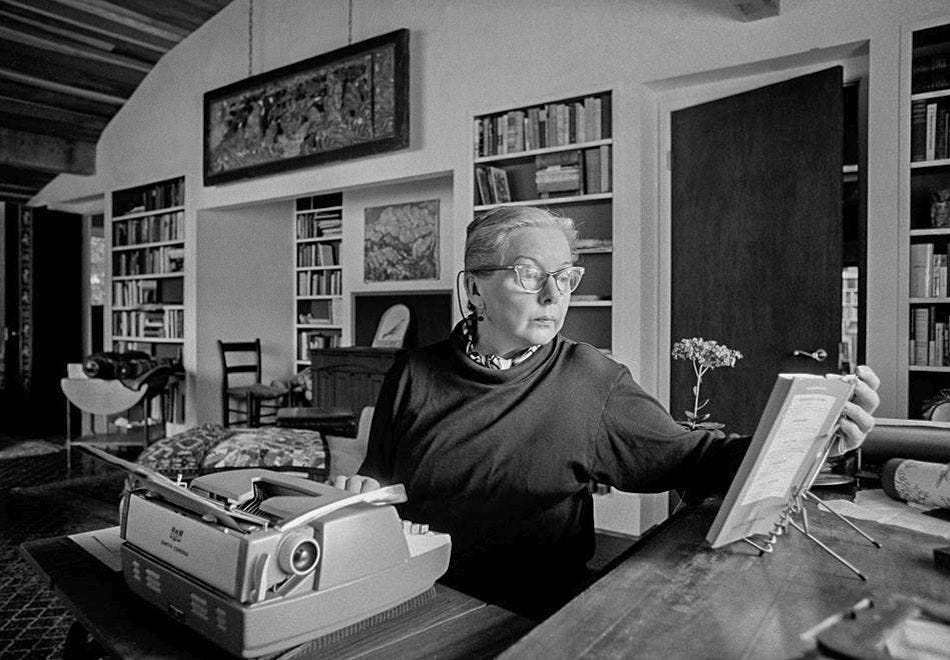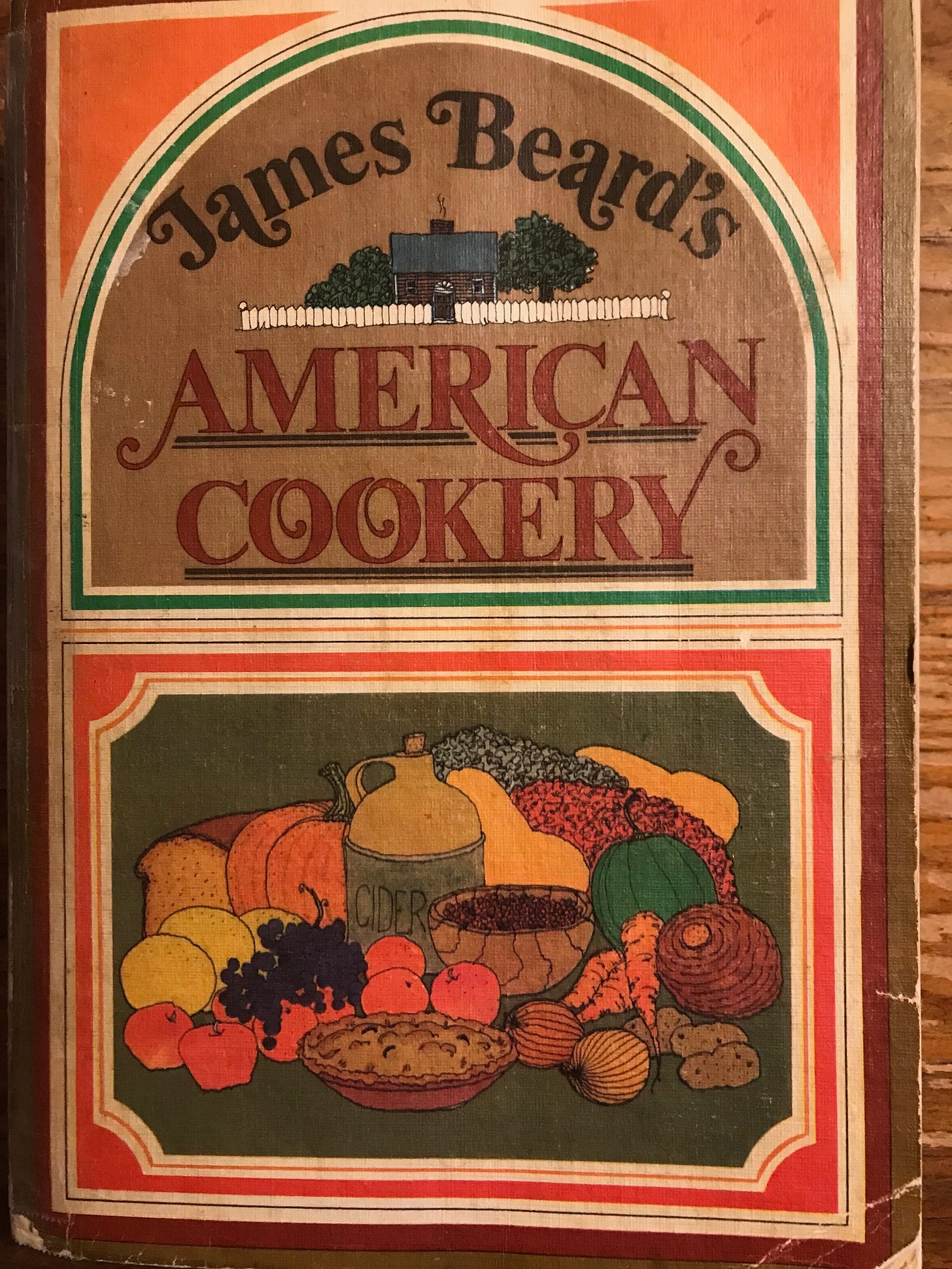Good cookbooks are more than collections of recipes.
They’re also books. To be read. I turn to them for the author’s presence on the page. I turn to them for the pulse and the blood of the writer. I turn to them for the author’s voice, which can be complex, learned, buoyant. Some voices are congenial. Some are warm. Some are funny. Some are all of the above. I like spending time with these authors. I like being in their presence.
Some cookbook authors clearly want to write more than they want to cook. They’re writers first. Food is a way for them to write about a country or a region or a city, about its people, its history and its culture. About, simply, life. You can sense the recipes are secondary. I don’t mind that at all when the writing is exceptional. I take out a favorite cookbook to read and often don’t go near the stove.
M.F.K. Fisher is a writer like that. Her book, The Art of Eating, has recipes. I’ve tried a few. But that’s not why I read her. I read her because she’s a superb writer. As the poet W.H. Auden, reviewing that book, said, “Though it contains a number of recipes, The Art of Eating is a book for the library rather than the kitchen shelf.” He went on, “I do not know of anyone in the United States today who writes better prose.” He meant of any kind.
At one point in The Art of Eating, M.F.K. Fisher says, “People ask me: Why do you write about food, eating and drinking? Why don’t you write about the struggle for power and security, and about love, the way others do?
“They ask it accusingly, as if I were somehow gross, unfaithful to the honor of my craft.
“The easiest answer is to say that, like most humans, I am hungry. But there is more than that. It seems to me that our three basic needs, for food and security and love, are so mixed and mingled and entwined that we cannot strongly think of one without the others. So it happens that when I write of hunger, I am really writing about love and the hunger for it, and warmth and the love of it and the hunger for it…and it is all one.”
There are writers who give you both—delicious recipes and delicious prose. When that happens—heaven. Marcella Hazan is such a writer in my opinion. This is her description of anchovies,
“Of all the ingredients used in Italian cooking, none produces headier flavor than anchovies. It is an exceptionally adaptable flavor that accommodates itself to any role one wishes to assign it. Chopped anchovy dissolving into the cooking juices of a roast divests itself of its explicit identity while it contributes to the meat’s depth of taste. When brought to the foreground, as in a sauce for a pasta or with melted mozzarella, anchovy’s stirring call takes absolute command of our taste buds.”
That’s not just fine cookbook prose. That’s fine prose, period.
Her superb writing aside, so many of many of Marcella Hazan’s recipes are knockouts. The best. Have you tried her roast chicken with lemons? Her Bolognese? Her tomato sauce with onion and butter? I have three or four of her books. I thank her all the time.
James Beard is another cookbook author in that class. No writer that I know of knows more about, and writes as well about, the history and evolution of American food. Reading him is a college education. He draws from his own profound knowledge as well as that gleaned from what seems every American cookbook ever written since Plymouth Rock. Here’s what he says about beets in James Beard’s American Cookery:
“The poor beet has suffered no end of unpopularity. This is quite beyond my understanding, for it is versatile and attractive and has good flavor. It has been in use since the Romans and seems to continue despite its enemies.”
I’m sure you could name many more. I’m sure you have your favorites. Cookbook authors whose prose is nourishing and, simply, desirable writing. Whose books are more than just reference books. Who give you themselves.
“There is food in the bowl,” M.F.K. Fisher writes, “and more often than not, because of what honesty I have, there is nourishment in the heart, to feed the wilder, more insistent hungers.”






Excellent! This piece made me hungry for both roast chicken with lemons and fine culinary literature!
I agree with you. The best cookbooks tell stories. A recipe all alone is sterile. Marcella Hazan's Bolognese recipe gets the most hits on my website from all over the world.